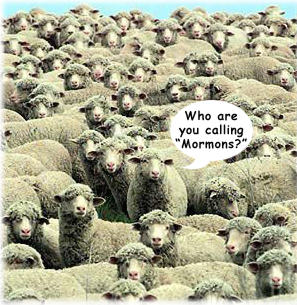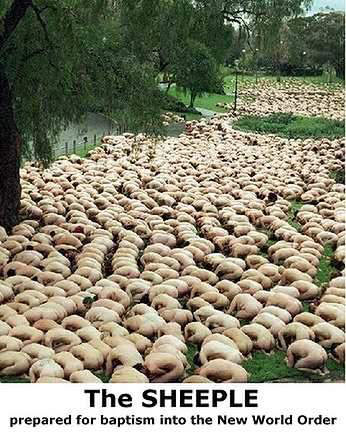Connection or Concoction ?
I can see why it is beneficial to be able to analyse the interaction between network members in order to better understand how, why and when connections between members are created in the interests of research. Until now I didn't realise it had a specific name: Social Network Analysis (Valdis Krebs) and at last I've been able to find information about the terminology thus far created to describe the roles in a network e.g the connectors, mavens, leaders, bridges, isolates, clusters, core, periphery. Good old Einstein is attributed with saying: “A foolish faith in authority is the worst enemy of truth.” Einstein would be remembered by most as a scientist, however I believe his brain was far more rounded that pigeonholing him in the science fraternity. He was more than 'science clever', he was wise, frequently profound and undeniably human. I wonder...... if Leonardo, Aristotle and Einstein were alive today, would they be prolific little connectivists, lurkers or 'isolates'. Did their energy come from within, or did it emanate from their connections ?Points raised concerning the Cascade Phenomena alluded to by Stephen in 'Cascades and Connectivity' (November 29, 2004) raise concerns.
For example ".......... every person in a network has decided to adopt Plan A, based on the opinions of their predecessors, even though Plan B may be the optimum plan....." Surely this would depend on the age and maturity of the network members. And how does this differ from being influenced by teachers, peer group, authors ?
and Feldstein suggesting "active moderators who have the authority to direct the group's information-sharing activities" . I can imagine this may be a strategy considered if the age of the network members was 12-16, however it reeks very strongly of a censorious LMS which I would have thought was completely contrary to the ideal of an autonomous network.
The more I read, the more I become confused. I would suggest that the only method of controlling a network would be in a closed system. The mesh reaches too far and wide in a complex network, and there are too many free and varied thinkers to reach a consensus on anything. The merit lies in the proliferation of ideas, perspectives and resources which allow one to refine one's own thinking. When does a crowd become a mob, and when does a network become an ideological group ?
Following a lead from my Einstein quote unearthed a Keith Boesky's great post at A Tree Falling In The Forest. Truth and knoweldge do not by default reside in either the network or the group, and semantic distinctions between the definitions of each, cloud the facts. Truth and knowledge are disclosed oft times by the individual thinker, the challenger, the trail blazer who cares not whether he or she is being followed, quoted, linked to or tweeted . Keith contrasts The Stupidity of Crowds and The Wisdom of Aspergers: Death of Innovation in Americab observing:
"......The power of the Internet and growth of social network brings an increased focus to the "Wisdom of Crowds." I've fallen for it too, writing about the hive mind and how quickly a group can come together to solve a given problem. It is easy to be seduced by the aggregated brilliance.."
and:
"..........The same can be said for Copernicus, Galileo, Newton, Darwin, Einstein, Pasteur, Salk and Stiglitz. Pioneers of silly ideas like the Earth revolving around the sun or injecting disease from cows to cause immunity. They all made great contributions by not listening to the crowd and today, we remember their names and benefit from their conviction.......social media is elevating metrics over innovation and connecting and amplifying the voice of the status quo, and by extension the march toward mediocrity. We should all aspire to embrace a little Aspergers into our every day thought. Some times lowest common denominator is not the answer......."As is frequently the case, the comments section provided a truly illuminating observation by Yaron:
The only problem I ever had with the theory of evolution is the claim that humans evolved from apes. From what I have learned thus far, it is more probable that humans evolved from sheep.
Continuing along the serendipitous path was amused by a results of a Scientific study
'Sheeple' - Crowds 'pick leaders to follow' reported by Roger Highfield. Researchers at Leeds University claimed that people in crowds behave just like sheep, blindly following one or two people who seem to know where they are going. They are convinced that their findings could hold ramifications for disaster management. To an extent I'm presently feeling a bit sheepish, however I hope I'm wise enough to choose an informed leader and should he or she prove otherwise I'll have no hesitation in abandoning the flock for greener pastures.
Which types of networks are at risk of becoming ruminant due to the absence of constructive dissention ?
Are Connectivists at risk of developing a 'hive mind' generated by mass media as proferred in 2007 by Mack White
"With knowledge no longer encapsulated in individuals, the distinction between individuals and the entirety of humanity would blur. Think Vulcan mind-meld. We would perhaps become more of a hive mind--an enormous, single, intelligent entity. There is no doubt that we have been brought closer to the "hive mind" by the mass media...... common sense should tell us that blurring the line "between individuals and the entirety of humanity" means mass conformity, the death of human individuality. Make no mistake about it--if humanity is to become a hive, there will be at the center of that hive a Queen Bee, whom all the lesser "insects" will serve. This is not evolution--this is devolution. Worse, it is the ultimate slavery--the slavery of the mind. And it is a horror first unleashed in 1938 when one million people responded as one--as a hive--to Orson Welles' Halloween prank. In a sense, those people who fled the Martians that night were right to be afraid. They were indeed under attack. But they were wrong about who was attacking them. Had they only known the true nature of the danger facing them, perhaps they would have ..... or at least commandeered the new technology and turned it towards another use--the liberation of humanity, instead of its enslavement.
Article from: http://www.thepeoplesvoice.org/cgi-bin/blogs/voices.php/2007/08/20/p18967
The value of Connectivism (or any theory) lies in the continuing debate between its proponents and its critics. The truth is somewhere out, there although it may never be unearthed. And the last word goes to John Ralston Saul -'Ten geographers who think the world is flat will tend to reinforce each others errors. Only a sailor can set them straight'........ ('Voltaire's Bastards').
Or maybe a Jester ?




No comments:
Post a Comment